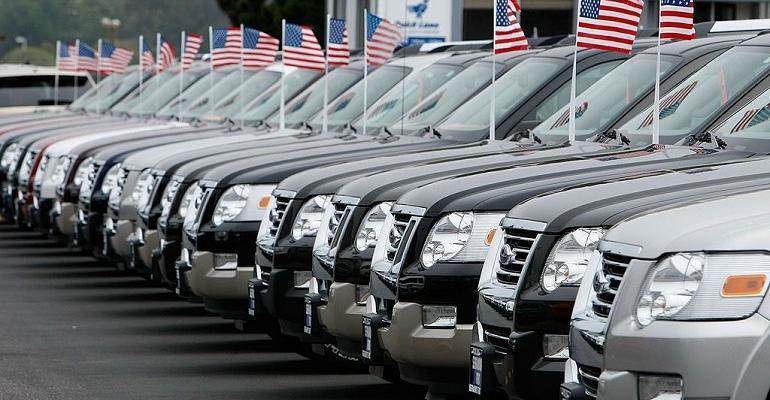Auto sales are steadily recovering, but a hoped-for surge failed to materialize this month despite dealerships in many states reopening with the relaxation of COVID-19-related stay-at-home orders.
Retail sales through May 24 were 670,000 units, a decline vs. a pre-virus forecast of 25% or 219,000 units, says J.D. Power. The research company predicts 991,000 retail sales for the month, a 24% decline from its pre-virus forecast.
Tyson Jominy, J.D. Power’s vice president-data and analytics, offers six reasons sales weren’t higher with the lifting of those state-at-home orders.
1. Many lessees have not yet returned to market. Only 22% of buyers during the week ending May 24 leased a vehicle, down nearly 10 percentage points from pre-virus levels.
Two reasons for that: First, an absence of lease incentives such as the zero-financing and deferred payments for consumers buying select new vehicle. Second, many lessees have extended their leases, putting them out of the market for now.
2. Mature buyers still are staying at home due to their greater vulnerability to the virus. While overall industry sales were 25% below the pre-virus forecast for the week ending May 24, sales to buyers age 66 to 75 years were down 30%, and 37% for buyers over 75.
3. Sales to subprime buyers still lag in the overall market due to their greater vulnerability to these tough times. Subprime buyers accounted for 7% of retail sales for the week ending May 24, down from the 10% pre-virus level.
4. With automakers only just recently reopening assembly plants, inventory is getting scarce, particularly for certain models, segments (notably pickup trucks) and geographic locations.
5: Some historical new-vehicle buyers are migrating to the used-vehicle market. That’s historic; during challenging economic times, some new-vehicle shoppers typically switch to cheaper pre-owned vehicles. Franchised dealers used-vehicle sales this month have been down 13% from the pre-virus forecast. New-vehicle sales were down 25%.
6: Relaxation of stay-home regulations reduced the historical consumer focus on Memorial Day weekend vehicle-buying. It’s usually one of the busiest vehicle-buying periods of the year.
But this year, it coincided with the resumption of business and leisure activities for the first time since stay-home restrictions were implemented for much of the U.S. population. That, coupled with the absence of big incentives beyond what has been offered since late March, “blunted consumer focus on vehicle-buying over the Memorial Day holiday,” Jominy says.





